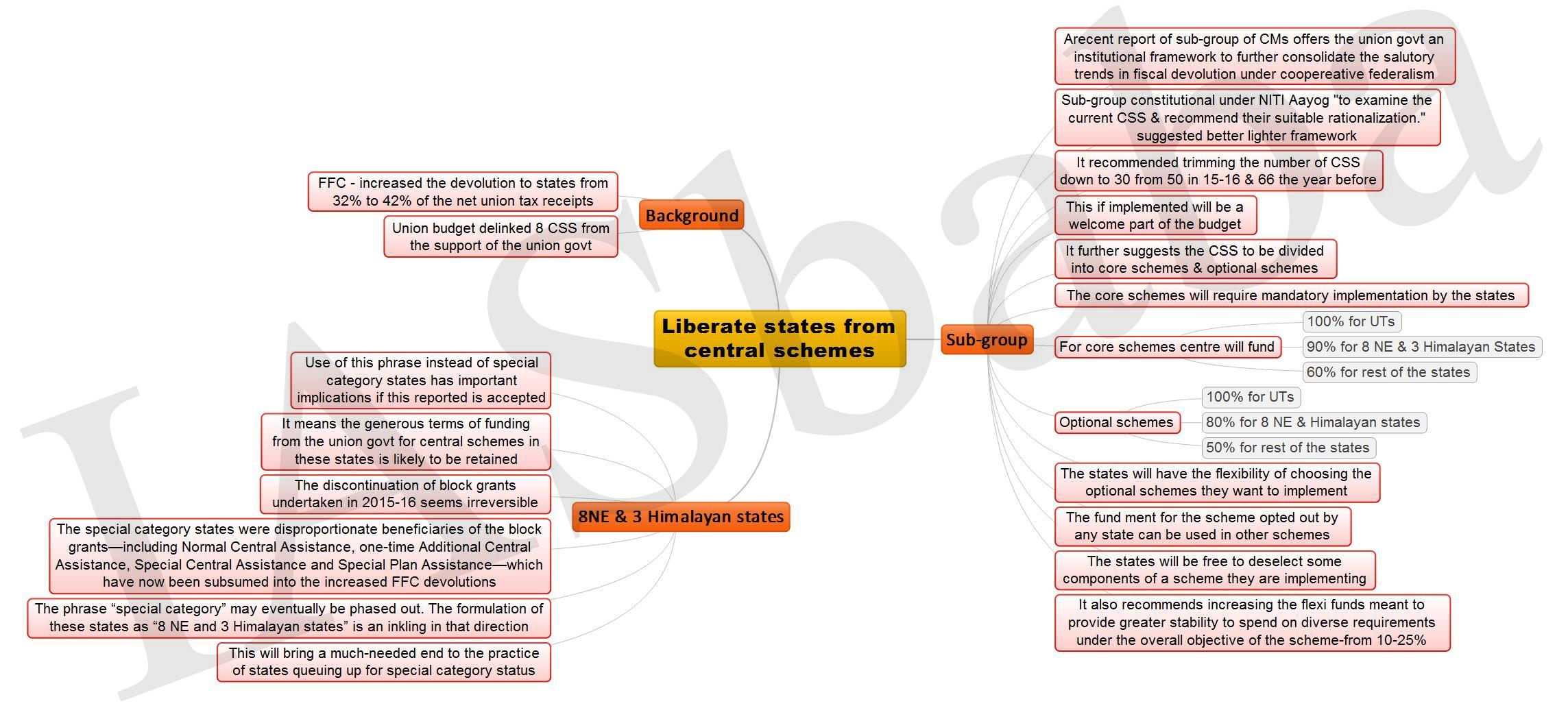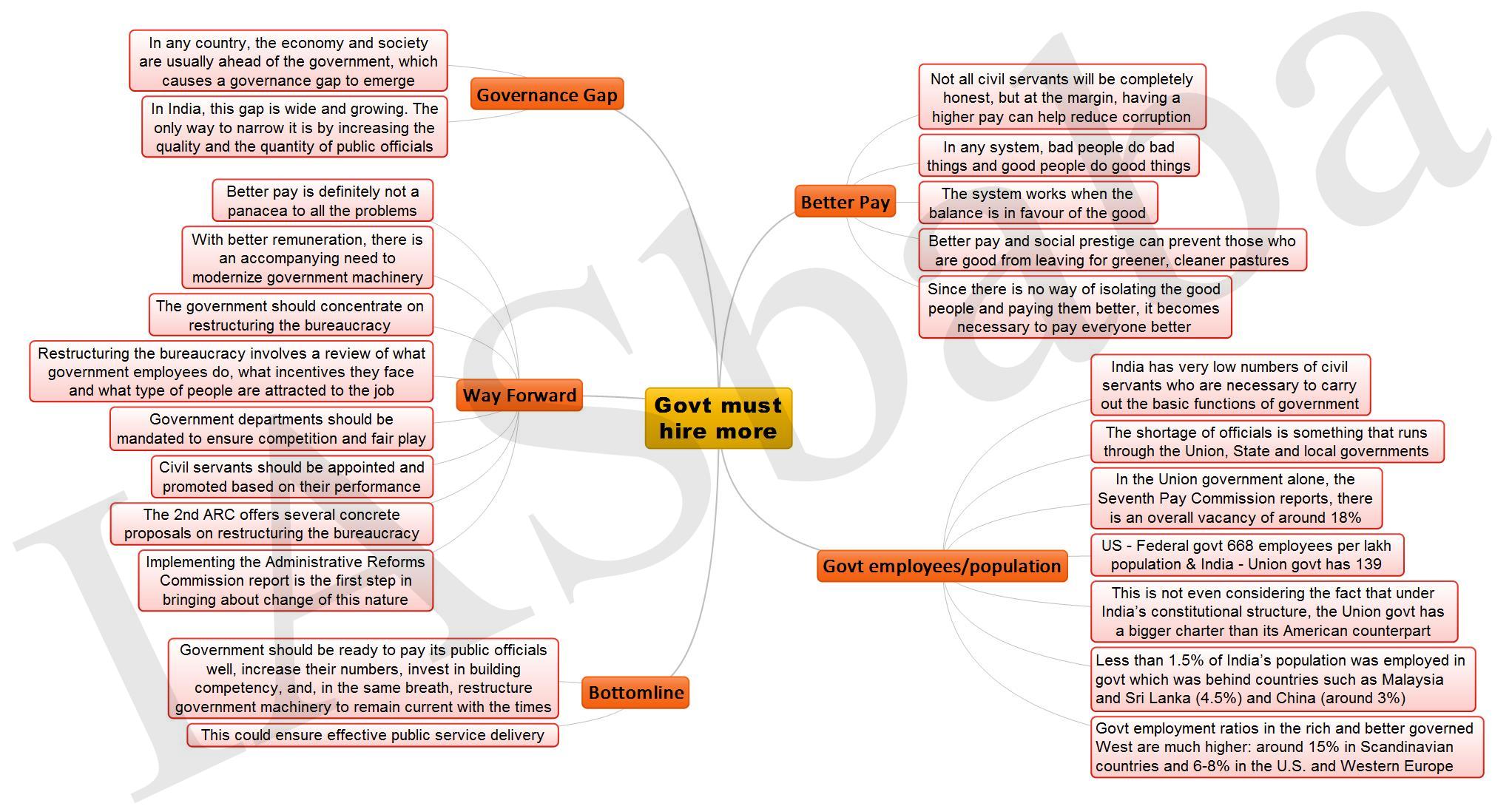IASbaba's Daily Current Affairs Analysis, IASbaba's Daily Current Affairs December 2015, National, UPSC
Archives
IASbaba’s Daily Current Affairs – 1st December, 2015
NATIONAL
TOPIC: General Studies 2
- Role of civil services in a democracy
- Important aspects of governance, transparency and accountability
Need for more Public Officials
An index called ‘Money’
- A quick dig-up of the whole issue pertaining to the ‘bias’ exhibited by the 7th Pay Commission towards Civil Services-would lead us to not only decode the logic behind the prevalent corruption in the country but also reach the roots of it; with a full-proof solution that has been lying ignored, since years.
- As citizens, we do expect that our civil servants work well, day in and day out but when it comes to the actual accounts of their blood and sweat into the job, we shrug our shoulders with the mind-set that it’s their job which they have chosen for themselves.
- This attitude of making them work and still not paying them well- breeds fertile ground for more opaqueness, less responsibilities shouldered efficiently as well as more corruption
- There is, additionally, no system of good behaviour being consistently rewarded which holds the potential to keep the officials on track and corruption at bay.
Widening governance gap
Minimise government to maximise governance:
- Government’s scope of existence must have an upper limit but minimizing government does not mean minimizing the officials the government recruits.
- India has less number of civil servants-one of the lowest ratios of government employees to population in the world; running through the Union, State and local governments
- Vacancy in the Union Govt.: Overall vacancy of around 18 per cent; thus, proving the fact that the even the sanctioned strength haven’t been filled thereby making the task of transforming more individuals into public officials difficult.
- Adding strength to the machinery of the government will not only make the machinery ready to speed up for delivering maximum governance but also, at the same time, increase the efficiency of the government workings; leading to better dissemination of the services to the citizens.
World Bank study (in the late 1990s): Salvatore Schiavo-Campo, Giulio de Tommaso and Amitabha Mukherjee found that less than 1.5 per cent of India’s population was employed in government, which was behind countries such as Malaysia and Sri Lanka (4.5 per cent) and China (around 3 per cent). In fact, government employment ratios in the rich and better governed West are much higher: around 15 per cent in Scandinavian countries and 6-8 per cent in the U.S. and Western Europe.
Richard Posner: “[perhaps] the relation between a nation’s economy and the percentage of its public workers is determined by a political and social culture that determines what tasks are assigned to government, what incentives and constraints are placed on public workers, and who is attracted to public service. Maybe, with the right combination, public service can be as economically productive as private enterprise.”
Restructuring Bureaucracy:
2nd ARC Report states the reasons:
- Systemic rigidities and complexities
- Over-centralization in the policy and management structures
- Hierarchical Structures
- Laxity in decision making
- Over-burdening of the decision –making system inviting delays and lack of efficiency
Synergy between Second Administrative Reforms Commission (ARC) and Pay Commission’s recommendations needs to be established for a better government and efficient governance in the country. The better payment prospects can be seen in a bright light only when the modernisation of the government takes place in the right way and at the right time (now)
How to Restructure the Bureaucracy?
- Review of the work of the government employees- System of objective evaluation at various levels
- Emphasize the importance of measuring result
- Highlight the outputs and outcomes rather than inputs and processes -Quantifiable outcomes
- Fairer opportunity is provided to be considered for appointments
- Fixation of tenure to check arbitrary transfers
- ‘Key result areas’ approach needs to be mainstreamed in performance appraisal
- Role and inter-relationship between the political executive and civil servants needs to be defined and codified
They will have to be given the new teeth to take up challenging tasks with renewed vigour which is only possible if competition and fair play is ensured otherwise the same song will keep on being played, to keep them glued to their actual duties- policy making, policy implementation and governance.
Case of Civil Service Legislations
Why-
- To establish the core principles, values and characteristics which create the distinctive culture and ethics of the reformed civil service
- To provide a legal basis for the legislatures in India to express important public service standards, ethical values and culture they would want in the civil service, and how these should be implemented.
They are-
- Commitment to the principles enshrined in the Constitution
- Adherence to the highest standards of probity, integrity and conduct
- Commitment to the citizens’ concerns and public good
- Impartiality and objectivity in all public dealings
- Empathy for the vulnerable sections of society
IASbaba’s Views:
- The government would do well to accept the recommendations and establish a proper bridge between both the recommendations—clearing the air w.r.t the need, payment, numbers, and competency, capacity-building in order to restructure the government machinery to stay abreast with the globalisation, the interdependency as well as the integration exhibited by the world.
- There is a need to shift to effective governance with a focus on decentralization and citizen-centricity; without much dependence on rules based approach and creating a broader management-like framework by developing robust indicators to assess performance and set a new tune for valuing t
Connecting the Dots:
- Highlight the weaknesses in the present training system of the Civil Services Professionals. Suggest a way ahead to sync their knowledge with the demand of their chosen career
- A World Bank study of six measures of perceived quality of governance affecting per capita GDP of more than 150 countries concluded that “results show a strong positive causal relationship from improved governance to better development outcomes”. Discuss the result bearing ‘Indian Governance’ in mind.
MUST READ
Nothing democratic about it
Towards peace in the House
India- Nepal : End the stand-off
A half-hearted attempt- The October 2015 draft aviation policy has made some interesting suggestions but it lacks long-term vision
For Detailed Analysis on ‘Aviation Policy’, refer the following
http://iasbaba.com/2015/10/iasbabas-daily-current-affairs-31st-october-2015/
Panel proposes to unleash watchdog on private coaching- Proposals are in public domain for consultation with stakeholders, coaching institutes are unhappy with suggestion of a watchdog
In their own voice
Two senior politicians speak up against ban politics, Section 377. They have been part of the problem, but it’s not too late.
For Detailed Analysis on ‘Section 377’, refer the following
http://iasbaba.com/2015/09/iasbabas-daily-current-affairs-18th-september-2015/
http://iasbaba.com/2015/06/iasbabas-daily-current-affairs-30th-june-2015/
MIND MAPS
1. Liberate States from Central Schemes
2. Govt Must Hire More
















